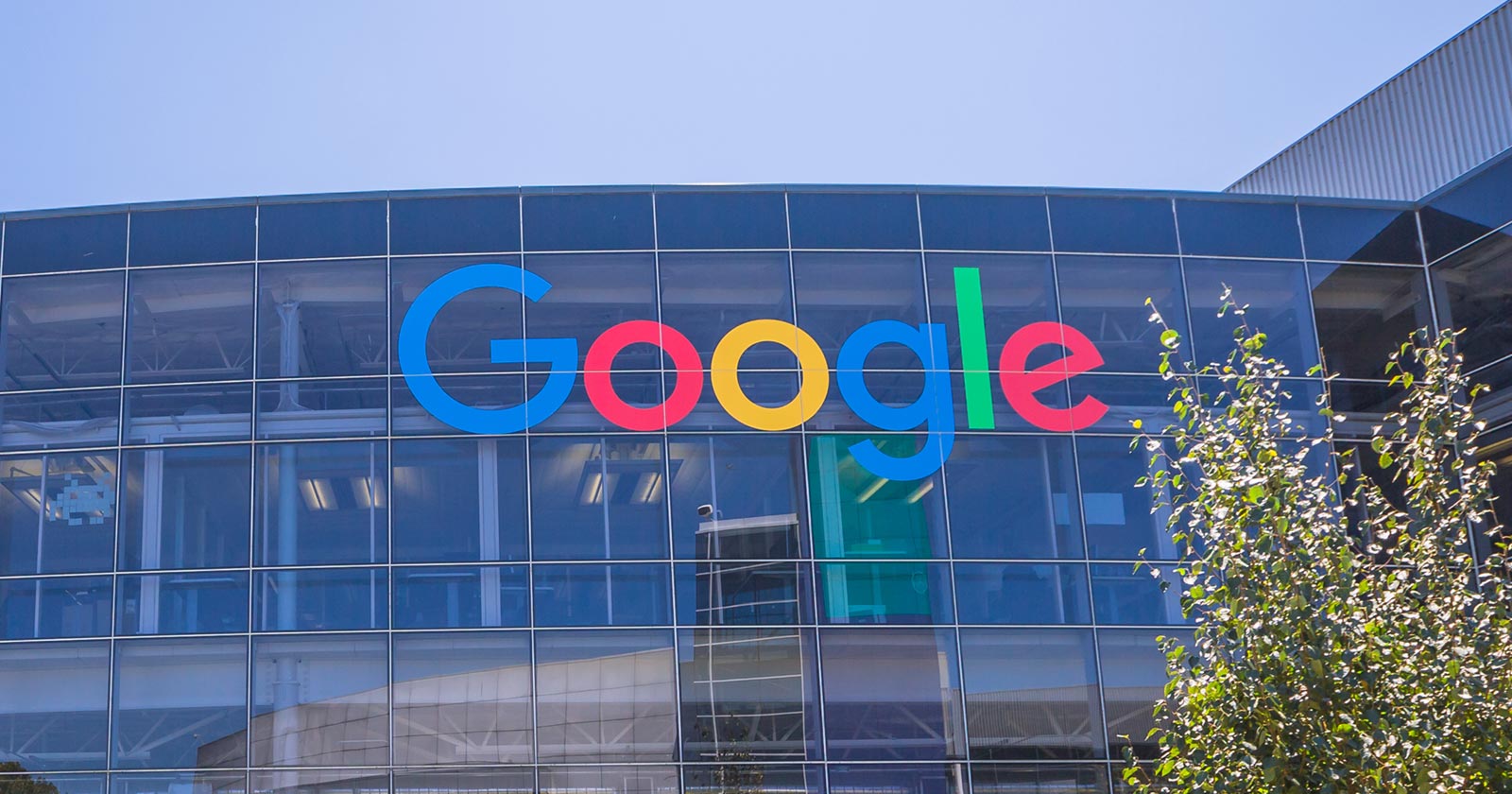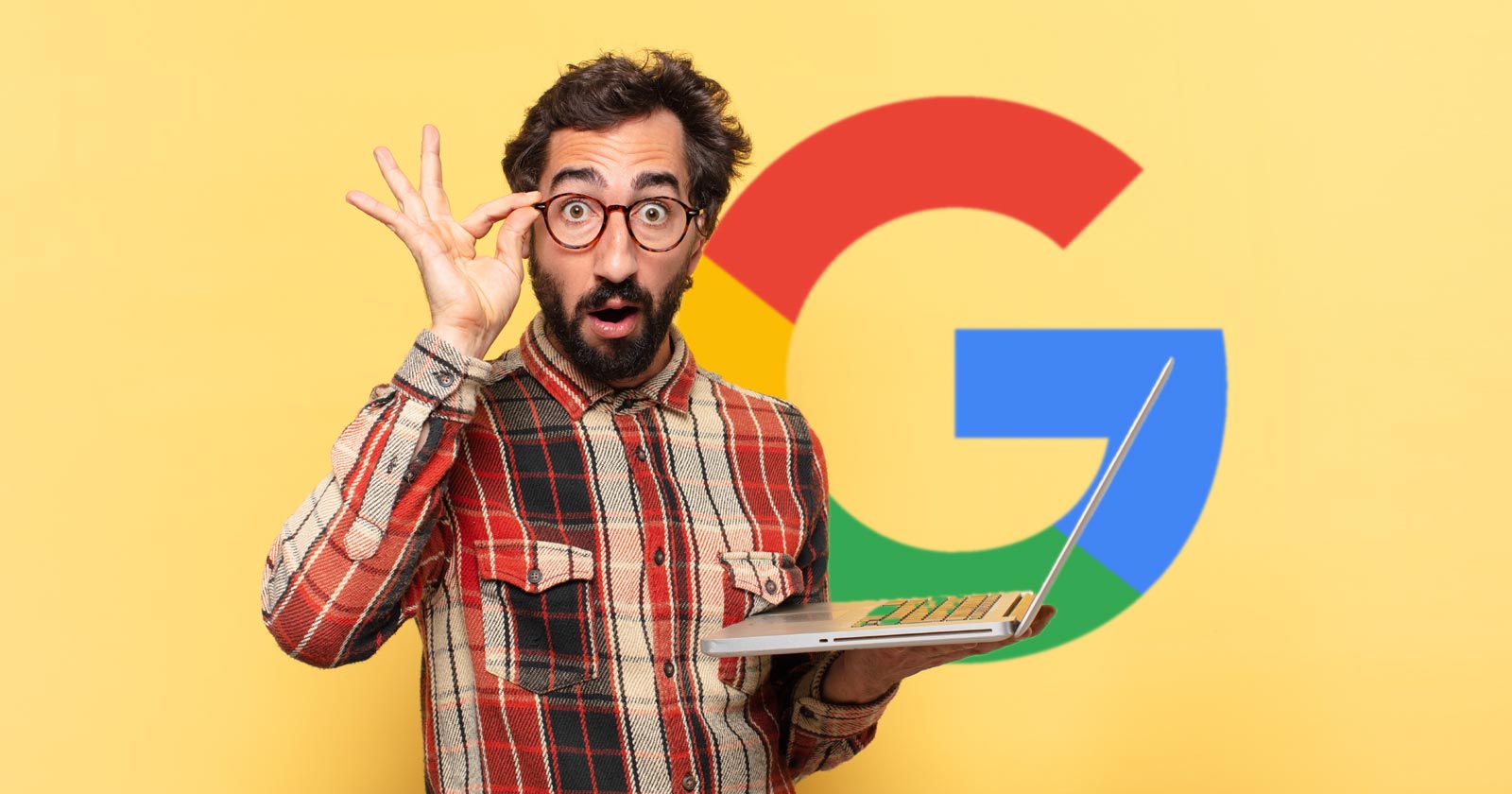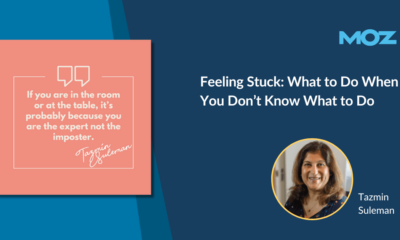SEO
7 Ad Copy Tests To Boost PPC Performance [With Examples]
It’s safe to say that online advertising is a must for any business.
We’re living in a digital age and, if you’re going to stand any chance of selling your products or services, you’re going to need to make sure your ads are landing right in front of your target demographic.
But simply paying for ads in the right places isn’t going to cut it. Forbes has found that the average American is exposed to between 4,000 and 10,000 ads every day.
When you take these statistics into account, it’s not surprising that 27% of Americans are using ad blockers.
Those who don’t block ads have their own mental filters that help them to decide what they want to look at and what they’re going to ignore.
No matter what products or services you’re selling, one thing is growing increasingly clear: You’re going to need some pretty engaging copy to help yours stand out from this ever-growing crowd.
Of course, what’s engaging and what isn’t is a pretty subjective matter. You’re going to want to know what actually works and what doesn’t. This is where ad copy tests can come to the rescue.
To help you create the best ads possible and improve your PPC performance, here are some ground rules, tips, and tricks for your upcoming ad copy tests.
Don’t Test For Testing’s Sake
As a starting point, it is essential to have a hypothesis of what you think will enhance your conversion rate and why – at all times.
Here’s the testing methodology my company follows:
![7 Ad Copy Tests To Boost PPC Performance [With Examples] Adwords Testing Methodology](https://articles.entireweb.com/wp-content/uploads/2022/05/7-Ad-Copy-Tests-To-Boost-PPC-Performance-With-Examples.png)
Aim For Producing Clear Results
Always have ample data when you’re running tests!
Statistical significance should be your goal (in addition to that increased performance).
According to Google, your test should run until it meets one of two conditions:
- At least one variant has a 95% probability to beat baseline (this free A/B calculator should help).
- Two weeks have passed, to account for cyclical variations in web traffic during the week.
This leads us to the last testing ground rule.
Set A Testing Timeframe
Remember that tests shouldn’t be left running forever. Define a specific time frame to gain valuable data and stick to it.
Not every test will result in significance one way or the other and that’s ok. Chalk that test up as inconclusive and move on.
Now, with those ground rules out of the way, onto the tests!
1. Numerical Abbreviations Vs. Full Numerical Values
It’s no secret that ads with numbers help quantify information, whether it’s your inventory, a discount, or the price of your products.
Using numbers makes your ads more attention-grabbing and helps them cut through all the noise that other PPC ads are creating (more about that here).
Numbers also show that you’re a brand worth taking seriously – after all, you have data to back up your claims, right?
So basically, numbers are good.
The question then becomes:
- What do you think your targets will respond to?
- Would it be numerical abbreviations, for example, 15M, or full numerical values, for example, 15,000,000?
When creating an ad copy, it turns out that manipulation of numerical values is a great method of grabbing attention and differentiating ads.
2. Add, Modify, And Remove Pricing
Prices can be a double-edged sword when it comes to PPC ads.
In fact, a recent analysis of top-performing ads shows just 40% of top-performing branded ads and 37% of non-branded ads included numbers.
What?
On one hand, being upfront with your pricing gives users the information they need to know and can subsequently help them make a faster purchase decision.
On the other hand, the price can turn people off by reminding them that they need to spend money. This is especially true if your product and/or service isn’t the cheapest that’s showing up in the search engine results.
So how do you know which approach works? Testing.
We worked with a homebuilder client to test variations of price inclusion. After setting up a few tests, it became clear that by generalizing the number, we could increase CTRs across these communities.
![7 Ad Copy Tests To Boost PPC Performance [With Examples] Number Testing](https://articles.entireweb.com/wp-content/uploads/2022/05/1652098981_121_7-Ad-Copy-Tests-To-Boost-PPC-Performance-With-Examples.png) Screenshot by author, August 2017
Screenshot by author, August 2017![7 Ad Copy Tests To Boost PPC Performance [With Examples] Number Testing](https://articles.entireweb.com/wp-content/uploads/2022/05/1652098981_121_7-Ad-Copy-Tests-To-Boost-PPC-Performance-With-Examples.png)
You can also frame your price as a discount to make it more attractive to readers. And speaking of discounts…
3. Experiment When Quantifying Promotions
In PPC marketing, it’s a common practice to quantify promotions with numbers, usually in the form of discounts, conditional pricing, and other special offers.
For example, instead of writing you have “cheap car accessories on sale,” you can write something more compelling, like “50% off on car accessories.”
But you can maximize your CTRs even further by changing the language you use in your promotions, as well as testing ads that feature percentages, actual pricing, and fully written offers.
Better yet, try testing your ‘discount’ with the top numbers that drive engagement:
![7 Ad Copy Tests To Boost PPC Performance [With Examples] 7 Ad Copy Tests To Boost PPC Performance [With Examples]](https://articles.entireweb.com/wp-content/uploads/2022/05/1652098981_512_7-Ad-Copy-Tests-To-Boost-PPC-Performance-With-Examples.png) Screenshot from Buzzsumo, August 2021
Screenshot from Buzzsumo, August 2021![7 Ad Copy Tests To Boost PPC Performance [With Examples] 7 Ad Copy Tests To Boost PPC Performance [With Examples]](https://articles.entireweb.com/wp-content/uploads/2022/05/1652098981_512_7-Ad-Copy-Tests-To-Boost-PPC-Performance-With-Examples.png)
4. Punctuation?!.
One of the easiest places to start with testing is around punctuation, and yet, few focus on tests this “simple.”
An analysis of 612 top-performing branded paid ads revealed that 48% of ads used exclamation points while just 11% used a dollar sign and even fewer used a question mark.
![7 Ad Copy Tests To Boost PPC Performance [With Examples] Punctuation in best branded ads](https://articles.entireweb.com/wp-content/uploads/2022/05/7-Ad-Copy-Tests-To-Boost-PPC-Performance-With-Examples.webp.webp) Screenshot from WordStream, December 2021
Screenshot from WordStream, December 2021![7 Ad Copy Tests To Boost PPC Performance [With Examples] Punctuation in best branded ads](https://articles.entireweb.com/wp-content/uploads/2022/05/7-Ad-Copy-Tests-To-Boost-PPC-Performance-With-Examples.webp.webp)
According to that same survey, the following punctuations were most common in non-brand paid ads:
- Exclamation: 42%
- Commas: 25%
- Question Mark: 11%
- Percentile: 9%
- Dollar Sign: 8%
Based on our own testing, the use of an exclamation point makes sense:
![7 Ad Copy Tests To Boost PPC Performance [With Examples] Exclamation Testing](https://articles.entireweb.com/wp-content/uploads/2022/05/1652098981_526_7-Ad-Copy-Tests-To-Boost-PPC-Performance-With-Examples.png) Screenshot by author, April 2022
Screenshot by author, April 2022![7 Ad Copy Tests To Boost PPC Performance [With Examples] Exclamation Testing](https://articles.entireweb.com/wp-content/uploads/2022/05/1652098981_526_7-Ad-Copy-Tests-To-Boost-PPC-Performance-With-Examples.png)
That said, the opportunity to test the use of punctuation (question marks, percentages, etc.) are worth exploring and align well with the use of emotion to drive incremental performance.
5. Appeal To Emotion
Most ads are extremely similar. They’re boring. They’re all the same. See?
![7 Ad Copy Tests To Boost PPC Performance [With Examples] Big Data Solutions](https://articles.entireweb.com/wp-content/uploads/2022/05/1652098981_762_7-Ad-Copy-Tests-To-Boost-PPC-Performance-With-Examples.png) Screenshot from search for [big data solutions], Google, August 2017
Screenshot from search for [big data solutions], Google, August 2017![7 Ad Copy Tests To Boost PPC Performance [With Examples] Big Data Solutions](https://articles.entireweb.com/wp-content/uploads/2022/05/1652098981_762_7-Ad-Copy-Tests-To-Boost-PPC-Performance-With-Examples.png)
Ads that appeal to people on a more emotional level can result in big gains in click-through rate.
Determine what your customer’s emotions are.
- What do they love/hate?
- What’s the biggest problem they face?
- How are you going to solve it?
Worst case, take a hint from headline categories that drive engagement on Twitter and Facebook.
![7 Ad Copy Tests To Boost PPC Performance [With Examples] 7 Ad Copy Tests To Boost PPC Performance [With Examples]](https://articles.entireweb.com/wp-content/uploads/2022/05/1652098981_566_7-Ad-Copy-Tests-To-Boost-PPC-Performance-With-Examples.png)
![7 Ad Copy Tests To Boost PPC Performance [With Examples] 7 Ad Copy Tests To Boost PPC Performance [With Examples]](https://articles.entireweb.com/wp-content/uploads/2022/05/1652098981_566_7-Ad-Copy-Tests-To-Boost-PPC-Performance-With-Examples.png)
While traditionally reserved for content ideation, using a headline analyzer like this one or this one can also help with the application of emotional headlines for ad copy.
6. Test Your CTA
Let’s face it, different people have different reactions to ads.
A key ingredient in shaping people’s reactions to your ads is presentation – basically, the way you ask them to trust your brand or try your product or service.
This is where language comes in, and it’s especially important when writing your CTAs.
As trivial as it may sound, the first word of your CTA has the potential to create a positive or negative impression of the ad itself.
The first word in your CTA could be the defining factor, so you need to test different first words (all of which should be verbs) in your CTA, and use the high converting copy.
For example, beginning with “Call us now,” instead of “Contact us today,” could lead to a noticeable difference in CTRs.
Likewise, “Shop now,” instead of “Order now” could lead to different levels of audience reaction.
Here’s a mashup of potential calls to action variations for you to test:
- Get
- Shop
- Buy
- Build
- Discover
- Book
- Order
- Purchase
- Get Started
- Call
- Request
- Reserve
- Make Reservation
- Join
- Try
- Take
- Download
- Sign up
- Learn
- Subscribe
- See
- Find Out
- Estimate
- Start
7. Play Around With Your Landing Pages
Naturally, landing pages are a great marketing tool, because they give your target market a chance to decide whether they should interact further with the business.
As a result, testing your landing pages is a fundamental part of doing business online.
Within Google Ads, there are a couple of landing page tests that you can easily do without making any changes to your website:
- Link directly to the most popular product in a category you’re advertising.
- Link directly to the category page.
- Try out different sorting methods on your category pages:
- Best selling first.
- Cheapest first.
- Newest first.
- Best reviewed first.
- Promotions first.
- Manual placement.
- Link to a search made for a particular brand, product or type of product.
- Link to your homepage (yes, it might work for you).
Pro Tip: Google Optimize is a godsend for this type of A/B and multi-variant testing (for both paid media and SEO).
When it comes to campaign optimization, you need to constantly be split testing like this and then analyzing your results. Otherwise, you’re doing your company – and your campaign – a huge disservice.
What’s Next?
Anyone in marketing knows that well-placed ads don’t come cheap.
Thorough ad copy testing can give you confidence in your ads and boost your chances of making a return on those that you do decide to run.
Following the steps above can help you to test your ad copy as best as possible before investing money in their placement. But what’s next?
Whether you experience success or find that you need to make further changes or improvements, ad testing should stay at the forefront of your list of priorities.
It’s important that you track your ads’ performance and analyze the data you collect.
This will help you to alter and edit ads as needed and make even more informed decisions going forward, maximizing success and profit.
Remember A.B.T: Always. Be. Testing.
More Resources:
Featured Image: Minimallista/Shutterstock
!function(f,b,e,v,n,t,s)
{if(f.fbq)return;n=f.fbq=function(){n.callMethod?
n.callMethod.apply(n,arguments):n.queue.push(arguments)};
if(!f._fbq)f._fbq=n;n.push=n;n.loaded=!0;n.version=’2.0′;
n.queue=[];t=b.createElement(e);t.async=!0;
t.src=v;s=b.getElementsByTagName(e)[0];
s.parentNode.insertBefore(t,s)}(window,document,’script’,
‘https://connect.facebook.net/en_US/fbevents.js’);
if( typeof sopp !== “undefined” && sopp === ‘yes’ ){
fbq(‘dataProcessingOptions’, [‘LDU’], 1, 1000);
}else{
fbq(‘dataProcessingOptions’, []);
}
fbq(‘init’, ‘1321385257908563’);
fbq(‘track’, ‘PageView’);
fbq(‘trackSingle’, ‘1321385257908563’, ‘ViewContent’, {
content_name: ‘ppc-ad-copy-tests’,
content_category: ‘creation paid-media-strategy ‘
});
SEO
Google On Hyphens In Domain Names

Google’s John Mueller answered a question on Reddit about why people don’t use hyphens with domains and if there was something to be concerned about that they were missing.
Domain Names With Hyphens For SEO
I’ve been working online for 25 years and I remember when using hyphens in domains was something that affiliates did for SEO when Google was still influenced by keywords in the domain, URL, and basically keywords anywhere on the webpage. It wasn’t something that everyone did, it was mainly something that was popular with some affiliate marketers.
Another reason for choosing domain names with keywords in them was that site visitors tended to convert at a higher rate because the keywords essentially prequalified the site visitor. I know from experience how useful two-keyword domains (and one word domain names) are for conversions, as long as they didn’t have hyphens in them.
A consideration that caused hyphenated domain names to fall out of favor is that they have an untrustworthy appearance and that can work against conversion rates because trustworthiness is an important factor for conversions.
Lastly, hyphenated domain names look tacky. Why go with tacky when a brandable domain is easier for building trust and conversions?
Domain Name Question Asked On Reddit
This is the question asked on Reddit:
“Why don’t people use a lot of domains with hyphens? Is there something concerning about it? I understand when you tell it out loud people make miss hyphen in search.”
And this is Mueller’s response:
“It used to be that domain names with a lot of hyphens were considered (by users? or by SEOs assuming users would? it’s been a while) to be less serious – since they could imply that you weren’t able to get the domain name with fewer hyphens. Nowadays there are a lot of top-level-domains so it’s less of a thing.
My main recommendation is to pick something for the long run (assuming that’s what you’re aiming for), and not to be overly keyword focused (because life is too short to box yourself into a corner – make good things, course-correct over time, don’t let a domain-name limit what you do online). The web is full of awkward, keyword-focused short-lived low-effort takes made for SEO — make something truly awesome that people will ask for by name. If that takes a hyphen in the name – go for it.”
Pick A Domain Name That Can Grow
Mueller is right about picking a domain name that won’t lock your site into one topic. When a site grows in popularity the natural growth path is to expand the range of topics the site coves. But that’s hard to do when the domain is locked into one rigid keyword phrase. That’s one of the downsides of picking a “Best + keyword + reviews” domain, too. Those domains can’t grow bigger and look tacky, too.
That’s why I’ve always recommended brandable domains that are memorable and encourage trust in some way.
Read the post on Reddit:
Read Mueller’s response here.
Featured Image by Shutterstock/Benny Marty
SEO
Reddit Post Ranks On Google In 5 Minutes

Google’s Danny Sullivan disputed the assertions made in a Reddit discussion that Google is showing a preference for Reddit in the search results. But a Redditor’s example proves that it’s possible for a Reddit post to rank in the top ten of the search results within minutes and to actually improve rankings to position #2 a week later.
Discussion About Google Showing Preference To Reddit
A Redditor (gronetwork) complained that Google is sending so many visitors to Reddit that the server is struggling with the load and shared an example that proved that it can only take minutes for a Reddit post to rank in the top ten.
That post was part of a 79 post Reddit thread where many in the r/SEO subreddit were complaining about Google allegedly giving too much preference to Reddit over legit sites.
The person who did the test (gronetwork) wrote:
“…The website is already cracking (server down, double posts, comments not showing) because there are too many visitors.
…It only takes few minutes (you can test it) for a post on Reddit to appear in the top ten results of Google with keywords related to the post’s title… (while I have to wait months for an article on my site to be referenced). Do the math, the whole world is going to spam here. The loop is completed.”
Reddit Post Ranked Within Minutes
Another Redditor asked if they had tested if it takes “a few minutes” to rank in the top ten and gronetwork answered that they had tested it with a post titled, Google SGE Review.
gronetwork posted:
“Yes, I have created for example a post named “Google SGE Review” previously. After less than 5 minutes it was ranked 8th for Google SGE Review (no quotes). Just after Washingtonpost.com, 6 authoritative SEO websites and Google.com’s overview page for SGE (Search Generative Experience). It is ranked third for SGE Review.”
It’s true, not only does that specific post (Google SGE Review) rank in the top 10, the post started out in position 8 and it actually improved ranking, currently listed beneath the number one result for the search query “SGE Review”.
Screenshot Of Reddit Post That Ranked Within Minutes
Anecdotes Versus Anecdotes
Okay, the above is just one anecdote. But it’s a heck of an anecdote because it proves that it’s possible for a Reddit post to rank within minutes and get stuck in the top of the search results over other possibly more authoritative websites.
hankschrader79 shared that Reddit posts outrank Toyota Tacoma forums for a phrase related to mods for that truck.
Google’s Danny Sullivan responded to that post and the entire discussion to dispute that Reddit is not always prioritized over other forums.
Danny wrote:
“Reddit is not always prioritized over other forums. [super vhs to mac adapter] I did this week, it goes Apple Support Community, MacRumors Forum and further down, there’s Reddit. I also did [kumo cloud not working setup 5ghz] recently (it’s a nightmare) and it was the Netgear community, the SmartThings Community, GreenBuildingAdvisor before Reddit. Related to that was [disable 5g airport] which has Apple Support Community above Reddit. [how to open an 8 track tape] — really, it was the YouTube videos that helped me most, but it’s the Tapeheads community that comes before Reddit.
In your example for [toyota tacoma], I don’t even get Reddit in the top results. I get Toyota, Car & Driver, Wikipedia, Toyota again, three YouTube videos from different creators (not Toyota), Edmunds, a Top Stories unit. No Reddit, which doesn’t really support the notion of always wanting to drive traffic just to Reddit.
If I guess at the more specific query you might have done, maybe [overland mods for toyota tacoma], I get a YouTube video first, then Reddit, then Tacoma World at third — not near the bottom. So yes, Reddit is higher for that query — but it’s not first. It’s also not always first. And sometimes, it’s not even showing at all.”
hankschrader79 conceded that they were generalizing when they wrote that Google always prioritized Reddit. But they also insisted that that didn’t diminish what they said is a fact that Google’s “prioritization” forum content has benefitted Reddit more than actual forums.
Why Is The Reddit Post Ranked So High?
It’s possible that Google “tested” that Reddit post in position 8 within minutes and that user interaction signals indicated to Google’s algorithms that users prefer to see that Reddit post. If that’s the case then it’s not a matter of Google showing preference to Reddit post but rather it’s users that are showing the preference and the algorithm is responding to those preferences.
Nevertheless, an argument can be made that user preferences for Reddit can be a manifestation of Familiarity Bias. Familiarity Bias is when people show a preference for things that are familiar to them. If a person is familiar with a brand because of all the advertising they were exposed to then they may show a bias for the brand products over unfamiliar brands.
Users who are familiar with Reddit may choose Reddit because they don’t know the other sites in the search results or because they have a bias that Google ranks spammy and optimized websites and feel safer reading Reddit.
Google may be picking up on those user interaction signals that indicate a preference and satisfaction with the Reddit results but those results may simply be biases and not an indication that Reddit is trustworthy and authoritative.
Is Reddit Benefiting From A Self-Reinforcing Feedback Loop?
It may very well be that Google’s decision to prioritize user generated content may have started a self-reinforcing pattern that draws users in to Reddit through the search results and because the answers seem plausible those users start to prefer Reddit results. When they’re exposed to more Reddit posts their familiarity bias kicks in and they start to show a preference for Reddit. So what could be happening is that the users and Google’s algorithm are creating a self-reinforcing feedback loop.
Is it possible that Google’s decision to show more user generated content has kicked off a cycle where more users are exposed to Reddit which then feeds back into Google’s algorithm which in turn increases Reddit visibility, regardless of lack of expertise and authoritativeness?
Featured Image by Shutterstock/Kues
SEO
WordPress Releases A Performance Plugin For “Near-Instant Load Times”

WordPress released an official plugin that adds support for a cutting edge technology called speculative loading that can help boost site performance and improve the user experience for site visitors.
Speculative Loading
Rendering means constructing the entire webpage so that it instantly displays (rendering). When your browser downloads the HTML, images, and other resources and puts it together into a webpage, that’s rendering. Prerendering is putting that webpage together (rendering it) in the background.
What this plugin does is to enable the browser to prerender the entire webpage that a user might navigate to next. The plugin does that by anticipating which webpage the user might navigate to based on where they are hovering.
Chrome lists a preference for only prerendering when there is an at least 80% probability of a user navigating to another webpage. The official Chrome support page for prerendering explains:
“Pages should only be prerendered when there is a high probability the page will be loaded by the user. This is why the Chrome address bar prerendering options only happen when there is such a high probability (greater than 80% of the time).
There is also a caveat in that same developer page that prerendering may not happen based on user settings, memory usage and other scenarios (more details below about how analytics handles prerendering).
The Speculative Loading API solves a problem that previous solutions could not because in the past they were simply prefetching resources like JavaScript and CSS but not actually prerendering the entire webpage.
The official WordPress announcement explains it like this:
Introducing the Speculation Rules API
The Speculation Rules API is a new web API that solves the above problems. It allows defining rules to dynamically prefetch and/or prerender URLs of certain structure based on user interaction, in JSON syntax—or in other words, speculatively preload those URLs before the navigation. This API can be used, for example, to prerender any links on a page whenever the user hovers over them.”
The official WordPress page about this new functionality describes it:
“The Speculation Rules API is a new web API… It allows defining rules to dynamically prefetch and/or prerender URLs of certain structure based on user interaction, in JSON syntax—or in other words, speculatively preload those URLs before the navigation.
This API can be used, for example, to prerender any links on a page whenever the user hovers over them. Also, with the Speculation Rules API, “prerender” actually means to prerender the entire page, including running JavaScript. This can lead to near-instant load times once the user clicks on the link as the page would have most likely already been loaded in its entirety. However that is only one of the possible configurations.”
The new WordPress plugin adds support for the Speculation Rules API. The Mozilla developer pages, a great resource for HTML technical understanding describes it like this:
“The Speculation Rules API is designed to improve performance for future navigations. It targets document URLs rather than specific resource files, and so makes sense for multi-page applications (MPAs) rather than single-page applications (SPAs).
The Speculation Rules API provides an alternative to the widely-available <link rel=”prefetch”> feature and is designed to supersede the Chrome-only deprecated <link rel=”prerender”> feature. It provides many improvements over these technologies, along with a more expressive, configurable syntax for specifying which documents should be prefetched or prerendered.”
See also: Are Websites Getting Faster? New Data Reveals Mixed Results
Performance Lab Plugin
The new plugin was developed by the official WordPress performance team which occasionally rolls out new plugins for users to test ahead of possible inclusion into the actual WordPress core. So it’s a good opportunity to be first to try out new performance technologies.
The new WordPress plugin is by default set to prerender “WordPress frontend URLs” which are pages, posts, and archive pages. How it works can be fine-tuned under the settings:
Settings > Reading > Speculative Loading
Browser Compatibility
The Speculative API is supported by Chrome 108 however the specific rules used by the new plugin require Chrome 121 or higher. Chrome 121 was released in early 2024.
Browsers that do not support will simply ignore the plugin and will have no effect on the user experience.
Check out the new Speculative Loading WordPress plugin developed by the official core WordPress performance team.
How Analytics Handles Prerendering
A WordPress developer commented with a question asking how Analytics would handle prerendering and someone else answered that it’s up to the Analytics provider to detect a prerender and not count it as a page load or site visit.
Fortunately both Google Analytics and Google Publisher Tags (GPT) both are able to handle prerenders. The Chrome developers support page has a note about how analytics handles prerendering:
“Google Analytics handles prerender by delaying until activation by default as of September 2023, and Google Publisher Tag (GPT) made a similar change to delay triggering advertisements until activation as of November 2023.”
Possible Conflict With Ad Blocker Extensions
There are a couple things to be aware of about this plugin, aside from the fact that it’s an experimental feature that requires Chrome 121 or higher.
A comment by a WordPress plugin developer that this feature may not work with browsers that are using the uBlock Origin ad blocking browser extension.
Download the plugin:
Speculative Loading Plugin by the WordPress Performance Team
Read the announcement at WordPress
Speculative Loading in WordPress
See also: WordPress, Wix & Squarespace Show Best CWV Rate Of Improvement
-

 WORDPRESS7 days ago
WORDPRESS7 days ago10 WordPress Influencers to Follow in 2024 – WordPress.com News
-

 SEARCHENGINES7 days ago
SEARCHENGINES7 days agoGoogle Image Search Adds Pixel Level Object Segmentation Animation
-

 MARKETING7 days ago
MARKETING7 days agoFeeling Stuck: What to Do When You Don’t Know What to Do
-

 PPC5 days ago
PPC5 days agoA History of Google AdWords and Google Ads: Revolutionizing Digital Advertising & Marketing Since 2000
-

 SEARCHENGINES6 days ago
SEARCHENGINES6 days agoMore Google March 2024 Core Update Ranking Volatility
-

 PPC6 days ago
PPC6 days agoCompetitor Monitoring: 7 ways to keep watch on the competition
-

 PPC6 days ago
PPC6 days ago31 Ready-to-Go Mother’s Day Messages for Social Media, Email, & More
-

 WORDPRESS6 days ago
WORDPRESS6 days agoThrive Architect vs Divi vs Elementor















You must be logged in to post a comment Login